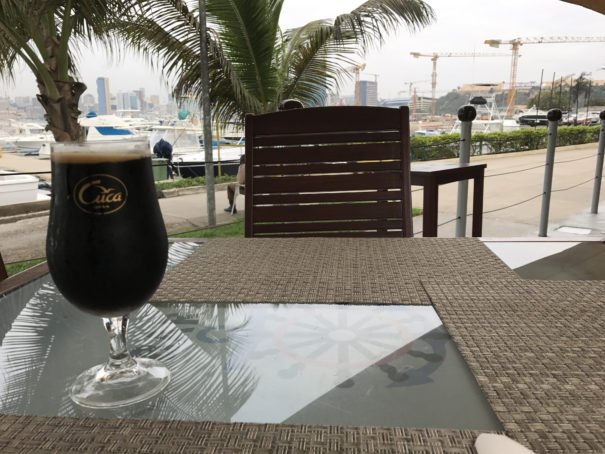
In Angola, We Like Our Electoral Fraud Refined and Sophisticated

In Angola, We Like Our Electoral Fraud Refined and Sophisticated

Cuca Preta in Luanda
Ballot-stuffing is so last decade. And so uncouth.
Here in Angola, we prefer our electoral fraud more refined, more sophisticated. Ballot-stuffing isn’t necessary when the incumbent’s party controls the media, the National Electoral Commission, and even the Supreme Court. Our institutions aren’t just weak—they’re a sham. After finally achieving peace from its long civil war in 2002, Angola hasn’t managed to hold truly free elections on any of the three occasions it has tried. In 2008, the opposition cried fraud after serious allegations of vote-rigging. The same happened in 2012. But then, they still took their seats in parliament.
Being in parliament in Angola is a big deal. It comes with salaries several hundred times the minimum wage in Angola, the latest Lexus SUVs, and the all-expenses-paid lifestyle so common to our legislators, who don’t actually do much in parliament besides sit in plush chairs and raise their hands from time to time so that it looks like they give a shit.
Do I sound angry? I am. Nothing a few mugs of cold Cuca Preta can’t fix, although I’m feeling particularly pessimistic. Cuca, the biggest of Angola’s many national beer companies, just released a new black beer that’s all the rage right now. If Angola had as many top-notch universities as it does beer companies, we’d probably be able to organize a free and fair election.
Angola went to the polls on Aug. 23 to select their new president and members of parliament. These elections were particularly special: for the first time in our post-civil war history, José Eduardo’s name wasn’t on the ballot. He’d been in power for 38 years. Instead, his all-powerful party, the MPLA, put resident stegosaurus and current Defense Minister João Lourenço on the ballot—a man with a belief system so old and rigid he could have been featured in Jurassic Park. Short on ideas, charisma, and a grasp on reality, the MPLA campaigned hard against a backdrop of economic recession in Angola, precipitated in part by a fall in oil prices, but mostly caused by rampant corruption, gross mismanagement, and the erosion of our nascent middle class.
Despite an obscene amount of propaganda on state television, as well as the usual dictatorship tactics—voter suppression, beating up people from rival political parties, and throwing pamphlets from a plane over Luanda reminding people of the horrors of civil war—millions of people came out to vote in a calm, orderly fashion. Many voted for the opposition parties, especially CASA-CE and UNITA.
But the day after the elections, the MPLA declared themselves winners with a qualified majority, even before the National Electoral Commission—commonly known as the CNE and mostly staffed by MPLA loyalists—gave its verdict. UNITA said, “Not so fast.” They were doing a parallel count and said the MPLA couldn’t possibly have enough votes for such a majority. A few hours later, the Commission echoed the MPLA and said they had close to 65 percent of the vote. Except that not a single Provincial Electoral Commission had sent their official results to their National counterpart.
In a further blow to its credibility, seven members of the CNE, all of them nominated by opposition parties, declared in a public press conference that they did not participate in any vote-counting and didn’t know how the CNE’s spokeswoman got the numbers she announced. Cue post-electoral crisis. Again. Many Angolans, usually stoic and unconcerned with matters of citizenship (the MPLA really hammered home the notion that asking for your rights is akin to clamoring for war), are fed up, and publicly venting their anger and disillusionment with their ruling party and institutions.
Nine days after the vote, we still don’t know who won Angola’s elections, and by what percentage. The opposition parties filed procedural challenges against the CNE and were promptly told to go screw themselves. They then filed a legal challenge with Angola’s Constitutional Court, who pretty much said the same thing as the CNE, but with a healthy dose of legalese bullshit.
I order another Cuca Preta. There’s no knowing when this will be over. And I don’t want to be this angry when it is.